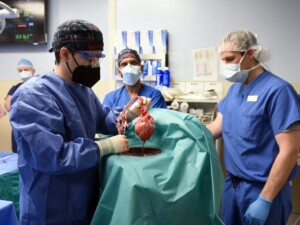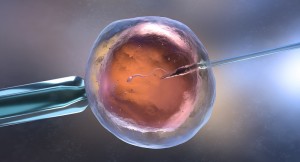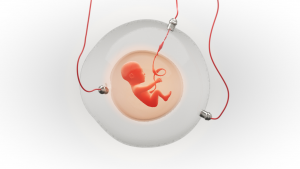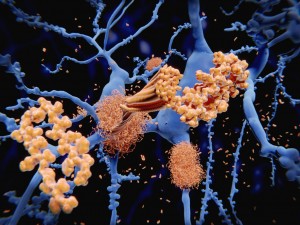NCER 2023 Holiday Greetings
Esteemed NCER Supporter,
When people think of worthy pro-life causes, on the top of the list is 1) faithful sidewalk counseling and prayer, 2) supporting crisis pregnancy centers, 3) caring for the practical needs of pregnant women in crisis, and 4) healing for those who have been traumatized by abortion. But being pro-life is not just about abortion.
People infrequently think of the enormous impact that anti-life practices within medical research and healthcare have. …
Dec
The World’s First Synthetic Human Embryo: No need for sperm, eggs, and fertilization
Worldwide, the prevalence of miscarriage is extremely high, yearly reported at 23 million. Of the average 6 million pregnancies in the United States each year, 16% end in miscarriage. The fetus is most vulnerable within the first trimester, with the majority of losses occurring between week 6-8, possibly resulting from genetic or environmental factors. However, little to no research has yet been conducted on miscarriages during this time period due to lack of access. Human …
Oct
“Doctors have a macabre new way to harvest organs”
Dr. Klessig, anesthesiologist and pain management specialist (respectforhumanlife.com), gives us a refreshingly frank perspective of the of ethics involved in the NRP-cDCD organ transplantation procedure.
Jun
American College of Physicians Statement of Concern
The American College of Physicians, the largest specialty society in the world (Internal Medicine) offers expertise and insight into the definition of both circulatory and brain death. In doing so, they uncover breaches in both logic and ethics as presented in the new NRP-cDCD protocol. Take the time and read the following article to get a clear perspective.
Jun
Understanding Gain of Function and it’s impact on the Pandemic
In our 2022 year-end report, we briefly discussed an ethical issue directly associated with the recent pandemic, namely Gain of Function (GOF) research. It is vital that we possess understanding of GOF origins and significance.
GOF research had been quietly pursued internationally for decades before it was officially named and given public attention. In 2011, 2 groups of scientists (funded by the National Institute of Health (NIH)) genetically engineered an avian influenza virus (H5N1), making …
Feb
Medical Credibility Crisis
It is critical that all of us are aware of the credibility crisis that currently exists between the medical community and patients. During the unprecedented last 2.5 years, populations around the world have been repeatedly exposed to a new vaccine technology (mRNA) which did not complete long-term standard safety and efficacy research before it was brought to public use. Generally speaking, in times of crisis such as a pandemic, people trust the medical experts. In …
Sep
Gene Edited Pig Heart Successfully Transplanted
In a ground-breaking first, researchers and surgeons at the University of Maryland Medical Center have successfully transplanted a gene-edited pig heart into a dying man. For the heart to not be rejected once transplanted, 10 separate genes were deleted or added using CRISPR, earning the donor animal the nickname of a “10 gene pig”. Over 100,000 patients are awaiting an organ transplant at any given time, and about 20 of them die each day. This …
Jan
Growing Humans in Labratories – Abandoning 14 Day Rule
NCER Commentary:
May
Another distressing first in scientific research
NCER Update
by: Carol Szczepaniak
Date:5-12-21
Mammalian embryos have been grown outside of a womb. The implications are chilling.
For the first time in Developmental Biology, a mammalian (mouse) embryo has been observed as it developed through half of its gestation period (11 weeks) while outside a natural womb. Using an intricate artificial placenta that provided oxygen and controlled atmospheric pressure, researchers in Israel successfully documented the formation of germ layers (ectoderm, mesoderm and endoderm), …
May
Alzheimer’s: Mouse study may have uncovered drug that can prevent the disease
NCER Comments: One in 14 people over the age of 65 have Alzheimer’s disease. This translates to 5.7 M in the US alone. There is no cure, only drug therapies that may lose their efficacy within months. Plaques are sticky deposits that build up in the brain and prevent communication between brain cells, leading to cognitive impairment. But three new protein, antibody and drug breakthroughs are on the cusp of changing everything.

…
Apr










